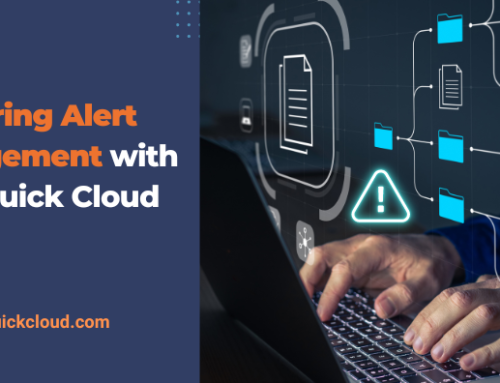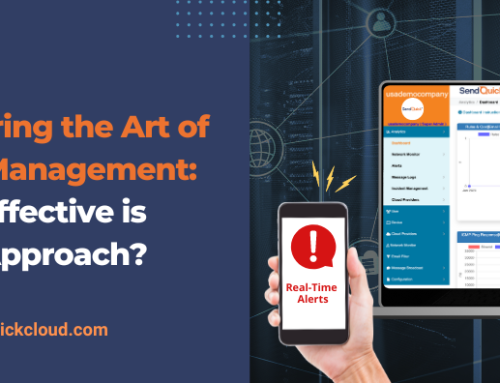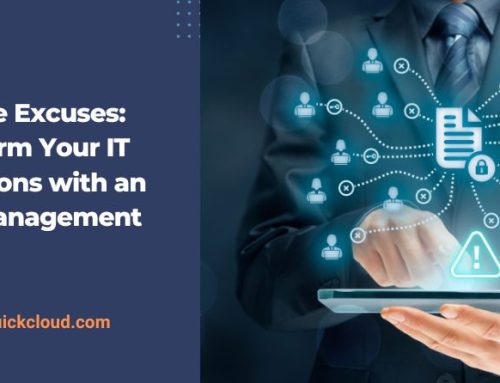As organizations increasingly migrate their infrastructure to the cloud, efficient IT alert management becomes crucial for ensuring the smooth operation and security of their digital ecosystems. With a myriad of cloud services and platforms generating a constant stream of alerts, IT teams face the challenge of effectively identifying, prioritizing, and responding to critical incidents in a cloud-based environment. In this article, we will explore how efficient communication practices can drive effective IT alert management in the cloud, leading to improved response times, minimized disruptions, and enhanced overall efficiency.
Real-Time Communication for Rapid Response
In the cloud, where services and applications are distributed across various environments and geographical locations, real-time communication channels are essential for swift incident response. Instant messaging platforms, collaboration tools, and dedicated alert management systems enable IT teams to communicate and coordinate in real-time, irrespective of their physical location. Real-time communication facilitates immediate awareness of critical alerts, enabling teams to collaborate, share insights, and collectively devise solutions. By leveraging these channels, IT teams can rapidly respond to incidents, preventing potential downtime and minimizing the impact on business operations.
Integration of Cloud-Native Alerting Mechanisms
Cloud platforms offer robust native alerting mechanisms that can be integrated into an organization’s IT alert management process. These mechanisms provide proactive notifications for cloud-specific events, such as resource utilization thresholds, performance degradation, security breaches, or service outages. By leveraging these built-in alerting capabilities, IT teams can receive timely notifications directly from the cloud platform itself, eliminating the need for manual monitoring and reducing response time. Integrating cloud-native alerts into the organization’s centralized incident management system ensures that all alerts, whether cloud-specific or from other sources, are consolidated and managed efficiently.
Automation for Efficient Incident Handling
Automation plays a vital role in streamlining IT alert management in the cloud. By leveraging automation tools and technologies, organizations can expedite incident handling processes, reduce human error, and improve overall efficiency. Automation can be applied to various aspects of alert management, such as incident triaging, initial response actions, and routing alerts to the appropriate teams or individuals. Additionally, automated workflows can be established to perform routine tasks, such as restarting services or scaling resources, based on predefined rules and thresholds. By automating repetitive and time-consuming tasks, IT teams can focus on critical incident resolution, leading to faster response times and optimized resource allocation.
Collaborative Cloud Incident Management
Cloud environments often involve multiple teams, including cloud operations, security, and application development. Efficient communication and collaboration among these teams are crucial for effective cloud incident management. Implementing collaborative incident management platforms that provide a centralized hub for cross-functional teams to communicate, share information, and track incident progress ensures effective coordination and reduces the risk of miscommunication or duplication of efforts. These platforms enable teams to work in a synchronized manner, aligning their efforts to resolve incidents swiftly, thereby minimizing disruptions to cloud services.
Conclusion
Efficient communication practices are instrumental in effective IT alert management within the cloud environment. Real-time communication channels, integration of cloud-native alerting mechanisms, automation, and collaborative incident management platforms empower IT teams to respond swiftly to incidents, optimize resource allocation, and minimize disruptions.
SendQuick Cloud helps you keep tabs on the health of your infrastructure and identify performance issues, send out real-time alerts to your relevant IT staff on duty via their preferred mode of social messaging communication channels, to mitigate potential damages to your business and keep automated systems running smoothly. By continuously learning from past incidents and improving communication processes, organizations can ensure that their cloud infrastructure remains secure, reliable, and efficient, thereby supporting their digital transformation journey – with SendQuick Cloud.
Get your free trial at www.sendquickcloud.com/free-trial.



